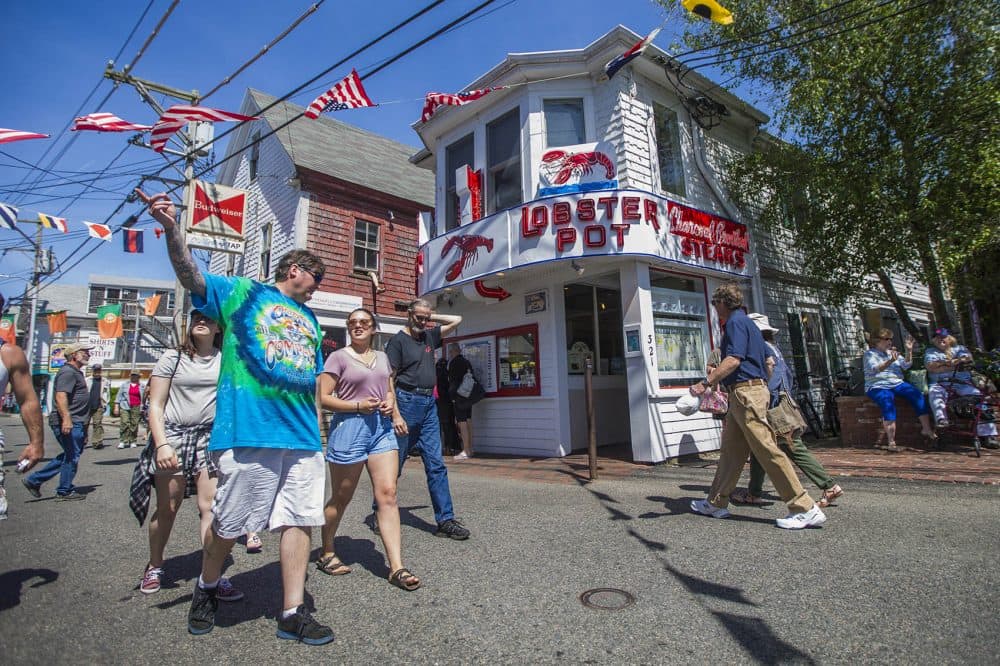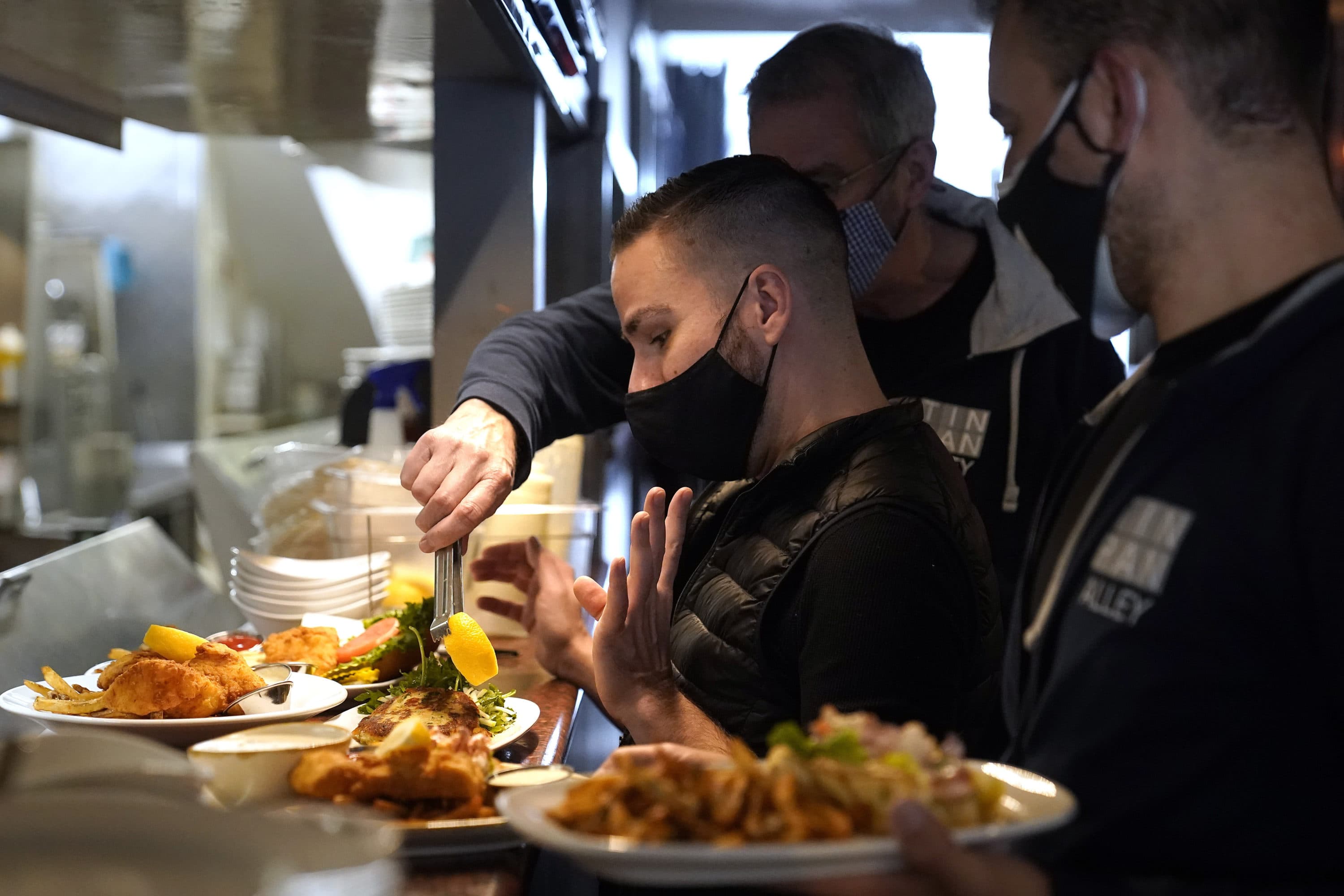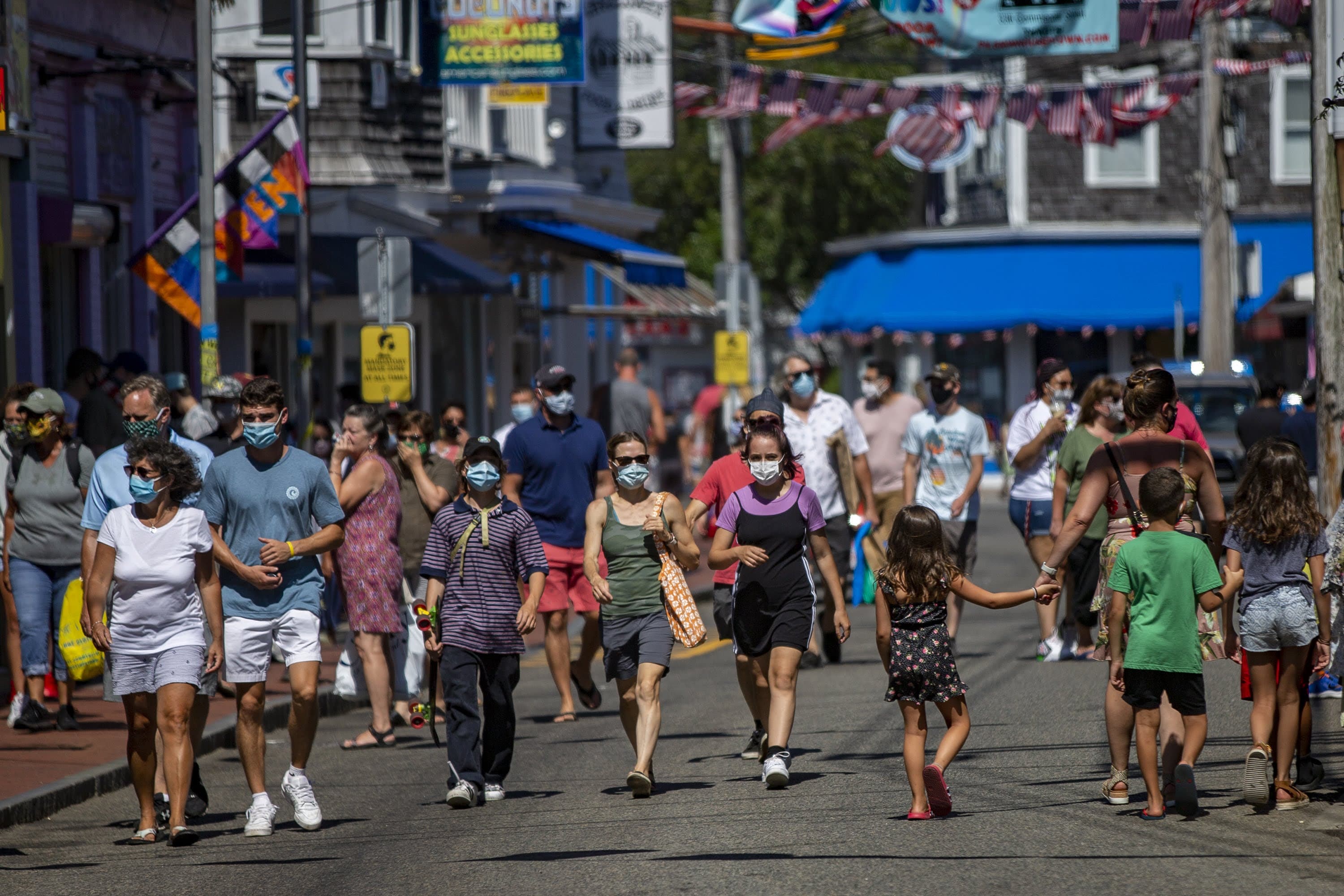Advertisement
Cape Cod businesses struggle to find workers ahead of summer season

Taylor Hayes needs workers right now.
One his restaurants, Clancy's in Dennis Port, was open year round before the pandemic. Now, it's only open seasonally because they don't have enough staff. His other restaurant, the Flying Bridge in Falmouth, only has enough workers to stay open four days a week, for lunch and dinner.
He says he needs to hire 70 to 90 people to get both restaurants up and running again year round.
"If we're lucky, we'll get half," said Hayes, who is also vice president of the management company Cape Cod Restaurants.
Hayes is not alone. Businesses all along Cape Cod are seeing a shortage of workers, particularly seasonal workers who help the region in the busy summer months. Restaurants, hotels and other businesses typically depend on teenagers, college students, and international workers visiting on J-1 and H-2B visa programs to pad Barnstable County's workforce, which typically increases by roughly 20,000 seasonal jobs in the summer.
But factors like the pandemic, housing stock and costs, and even international affairs are impacting this year's availability of workers.

Tom Murphy is the president of the Yarmouth Restaurant Association, which represents a couple dozen restaurants in the town. In his roughly 25 years working with the association, he says last summer and this summer have been the worst worker shortages he's seen. He says the pandemic is part of it, but this year, the invasion of Ukraine also seems to be a factor. Murphy says he's hearing less people are applying for the two visa programs, and the crisis is additionally impacting whether those who have applied will even be able to get to the United States.
"I think everybody's got a question in their mind whether it's going to work out or not," said Murphy.
The J-1 program is visa that allows international residents to work and live for a limited time in the U.S. According to data from the State Department's website, 7,501 J-1 visas were granted to Massachusetts in 2021 for workers year-round — that's compared with 20,441 visas granted in 2019. It's unknown how many of those were for workers on the Cape and Islands.
"Some of these guys have worked for our company for 15 to 18 years...and they need this income themselves. It's not just our businesses, it's their livelihoods."
Taylor Hayes, Cape Cod Restaurants
H-2B visas require businesses to sponsor workers. This year, the cap for the number of workers was increased, which means there'll be more workers accepted into the program overall, but that may or may not translate to more workers for the Cape, since the program is run as a lottery system. H-2B visas are distributed in two rounds, one for October through March, the other for April through September.
Taylor Hayes, of Cape Cod Restaurants, says his company was granted six workers in the first round of visa payouts. He's hoping for more in the second round of distribution. Typically his restaurants will employ between 55 and 70 H-2B visa holders a summer. He says getting the workers he needs is more than just good for his business.
"Some of these guys have worked for our company for 15 to 18 years ... and they need this income themselves," said Hayes. "It's not just our businesses, it's their livelihoods."
Advertisement
Tom Murphy, of the Yarmouth Restaurant Association, says Cape Cod restaurants are expecting a banner year, with more and more people feeling comfortable to travel and vacation again. And restaurants will get through the summer and see success. But less employees also means some restaurants will have to limit their hours or close down for one day each week to support the staff they do have. He says many restaurants on the Cape are seasonal, where they depend on eight to 10 weeks of income to support them throughout the whole year.
"Say you're in Boston, you have 52 weeks a year and you have Friday, Saturday and Sunday, as your big nights," said Murphy. "On the Cape ... let's say it's eight weeks. You have to consider that every night is like a Saturday night for a restaurant in Boston. So for them to close just one night, it's taking a very large percentage of their gross. They're not doing it because they're lazy, they're not doing it for any other reason than they don't have the help to cover all the shifts."
State Sen. Julian Cyr, who represents the Cape and the Islands, knows what it's like to cover shifts. His family owned Adrian's, a restaurant in Truro, for decades and he remembers helping out when they didn't have enough staff.
He says staffing has always been a problem on the Cape, but it's been exacerbated by housing prices. He says in the last year there's been a 20% increase in those prices. The pandemic has also changed what's available — and what's affordable — in the region, says Cyr, with many people selling their homes on the Cape or making their summer homes along the water their main residence to get away from the city.
"Many of the workers whom we rely on year after year, who either make a life here year-round or come back, just can't find housing," said Cyr. "I have 17 friends ... who are leaving this summer, who are not able to stay here this summer in Provincetown, in the outer Cape, because they can't find summer housing. This is a real catastrophe for us."

Cyr says this also applies to international visa holders who are responsible for finding and paying for their own summer housing. He says the Cape needs to "build our way out of this problem" focusing on building and creating affordable housing in the region. It's a solution that hits close to home for him.
"I'm a millennial Cape Coder and I cannot afford to purchase property in the part of the district that I represent, right on the outer Cape where I was born, where I grew up, where my family lives," said Cyr. "And I'm someone who has quite a bit of access and privilege, right? We are desperately struggling and I am really worried that we are reaching a tipping point where we are not going to be able to sustain year-round communities."
This segment aired on April 3, 2022. The audio for this segment is not available.
